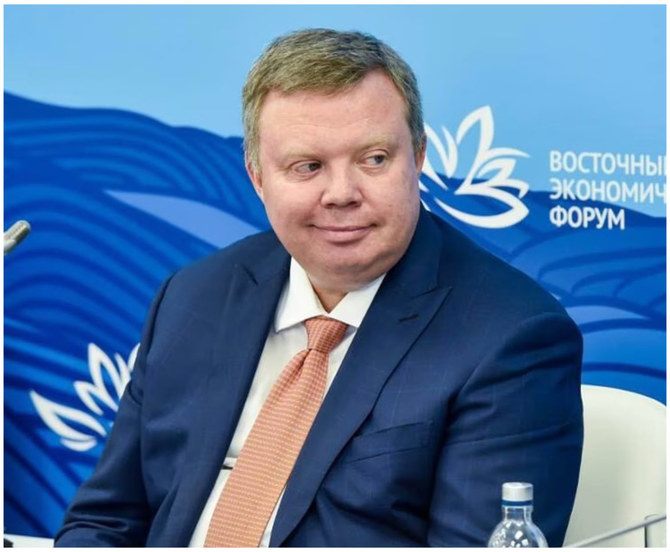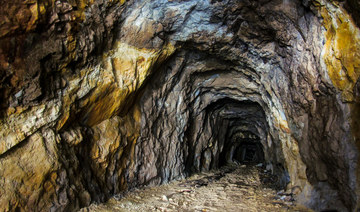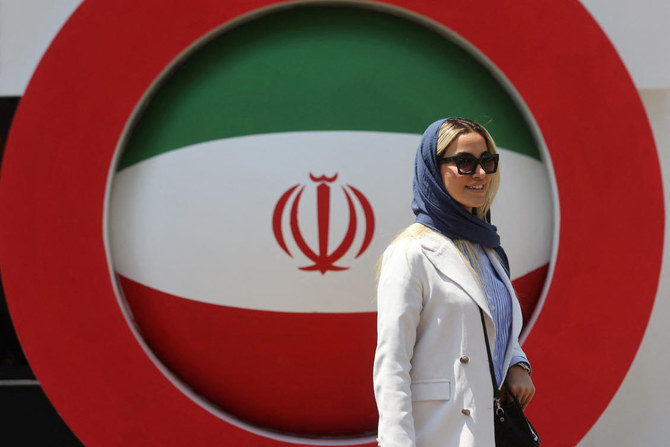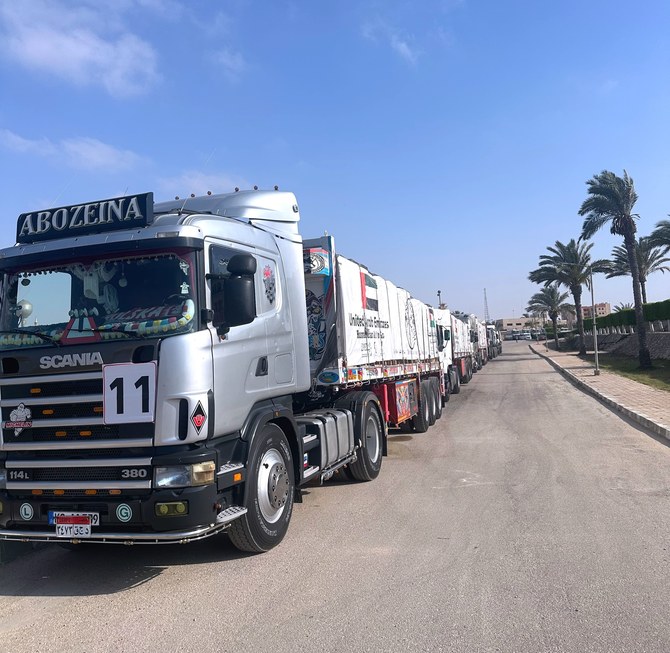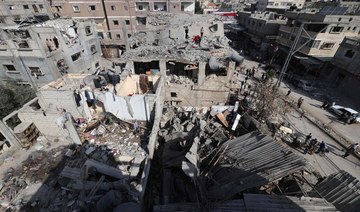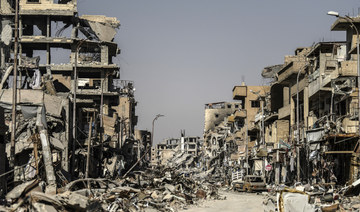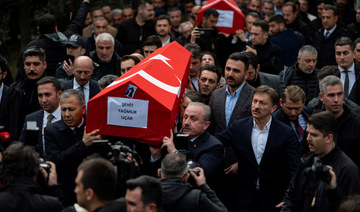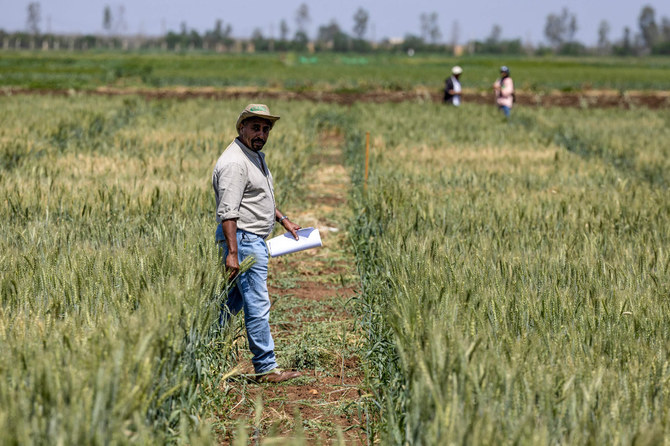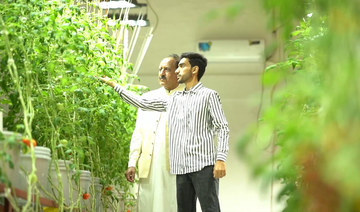Described as a recognized leader in the field of nuclear technologies, with a share of about 40 percent of the global market, the Russian state-owned corporation Rosatom is bidding to win a contract for the construction of a nuclear power plant in the Kingdom.
During an exclusive interview with Arab News, Kirill Komarov, Rosatom’s first deputy director general for corporate development and international business, spoke about the potential for Russian-Saudi cooperation in the field of nuclear energy and his company’s plans in the Kingdom.
What agreements currently exist between the Russian state-owned nuclear energy company Rosatom and Saudi Arabia?
Our cooperation with the Kingdom of Saudi Arabia is based on an Intergovernmental Agreement on Cooperation in the Field of Peaceful Uses of Atomic Energy, signed in the summer of 2015. Since 2017, Saudi Arabia has been carefully working on the selection of a suitable technology for the first nuclear power plant in the Kingdom.
Rosatom, as one of the world’s leading vendors, is certainly part of this process. In addition, there is a program of cooperation in a number of promising areas: the nuclear fuel cycle, low-power reactors, nuclear science and technology centers.
We have great respect for the ambitious development goals that the Kingdom has formulated in the Saudi Vision 2030 program. Thanks to the unique experience, and significant scientific and technical base, we are confident that Rosatom and the Kingdom of Saudi Arabia have many points of contact not only in the energy sector, but also in healthcare, environmental solutions and the creation of smart cities.
Which areas of cooperation between the two countries in the nuclear industry are most interesting and in demand?
Saudi Arabia has great potential in the development of both nuclear energy and non-energy applications of nuclear technologies. We see the interest of our Saudi partners in creating a full-fledged nuclear industry and building their own competencies.
I would also like to note the high level of development of the Saudi industry. It is, of course, ready to solve the complex tasks that production enterprises face when implementing projects in the field of nuclear energy and technology.
In this regard, the construction of a large-capacity nuclear power plant is, of course, a flagship for the development of the industry but it is equally important to develop infrastructure, the competence of specialists, and use all the capabilities and resources of Saudi Arabia in the field of the nuclear fuel cycle.
Being one of the global technology leaders, Rosatom State Corporation can offer its resources, competencies and almost 80 years of experience for the development of nuclear energy, in both energy and non-energy applications of nuclear technologies. Which of them to use is up to our partner to decide.
Saudi Arabia is actively seeking to develop its nuclear power industry. In particular, authorities want their own nuclear power plant. What could Russia offer in this regard? How strong is the competition for the implementation of such a project in the Kingdom?
Rosatom offers VVER-1200 reactors to its foreign partners. These reactors are operating all over the world. In total, Rosatom has built 81 units with VVER reactors. This is one of the most common types of reactor in the world today and, importantly, the safest. Nuclear power plants with reactors of this type comply with all post-Fukushima safety requirements.
The units based on the VVER-1200 reactors offered by Rosatom belong to the latest safety class, “3+,” and combine active and passive safety systems that make the NPP (nuclear power plant) as resistant to external and internal influences as possible.
One example of such systems is the “melt trap.” This is one of the main elements of the passive safety system of the power unit, the unique know-how of Russian nuclear scientists, which ensures safety for the environment and humans under any scenarios of NPP operation.
At the stages of design, construction and operation, a wide range of technical and organizational measures are also provided to prevent the development of emergency situations under any scenarios and their combinations.
Let me remind you that Rosatom was the first company to launch a generation 3+ nuclear power plant, in 2018. There are already five such reactors in operation, including one at the Belarusian NPP (BelAS power unit No. 2 is currently in the final stage of pilot operation). Nuclear power plants with VVER-1200, our flagship project, are being built in Bangladesh, Belarus, Hungary, Egypt and Turkey.
As for the competition, it certainly exists. Nevertheless, the position of our company in the world is obvious; Rosatom is one of the leaders of the global nuclear market, cooperating with partners in more than 60 countries around the world.
We have 33 power units at various stages of implementation in 10 countries; that is to say, we have more projects for the construction of reactors abroad than all of our competitors combined. We account for 85 percent of the world’s nuclear power plant exports. For 18 years, we have connected 18 power units around the world to the grid, as well as a floating nuclear power plant.
Rosatom is successfully developing nuclear power in Egypt. How is the implementation of this project going?
In Egypt, Rosatom is implementing the El-Dabaa NPP project, the first nuclear power plant in the country. It is the largest Rosatom project in Africa and is also one of the largest nuclear construction projects in the world.
The active phase of construction began last year, when the so-called “first concrete” was poured into the foundation of the first power unit. Today, the project is moving dynamically and in accordance with the directive schedule. We are already building three power units at the same time.
At the end of August this year, we received a license for the construction of the fourth block from the Egyptian supervisory authority, the Egyptian Nuclear and Radiological Regulatory Authority. This allows us to proceed to the full-scale construction stage on the fourth block.
Which countries in the Arab world have approached Russia to express an interest in developing nuclear energy?
The Middle East and North Africa region is now one of the drivers of the development of nuclear energy. In addition to the implementation of large-scale projects for the construction of large-capacity nuclear power plants, we see a high interest among Arab partners in small-capacity nuclear power plants.
The region, rich in oil and gas, invests in the implementation of clean-generation projects while, despite the abundance of solar and wind resources, it is increasingly investing in the development of nuclear energy. This not only eloquently testifies to the irreplaceable role of nuclear energy in terms of the formation of a green energy balance for the future by these countries, but also fits into the global trend; interest in nuclear generation is steadily growing around the world, even in those countries that have not previously considered nuclear energy for themselves.
We are connected with Middle Eastern partners by decades of successful cooperation in the field of nuclear energy and not only that. Historically, Russia was the first country to lend a helping hand at the initial stage of the development of important national infrastructure and industrial programs in the region, from the construction of hydroelectric power plants and personnel training, to the first research reactors and the development of nuclear infrastructure.
Today, Rosatom’s competencies are absolutely in demand. Agreements on cooperation in the field of peaceful use of nuclear energy of various formats have been signed with 16 countries in the region. The geography here is the most extensive: Algeria, Tunisia, Sudan, Morocco, etc.
Successful cooperation has been built with the Emirates Nuclear Energy Corporation; Rosatom provides the Barakah NPP project with enriched uranium products.
In Egypt and Turkey, we are “turnkey” (a term referring to ready-to-go solutions that are relatively easier to deploy) implementing two of the world’s largest nuclear power plant construction projects, the El-Dabaa NPP and the Akkuyu NPP, respectively.
Throughout its history, the enterprises of the Russian nuclear industry have accumulated a unique set of products and solutions in the field of nuclear energy, which make it possible to successfully implement projects for the construction of nuclear power plants not only from A-to-Z, but also to provide support at any stage of their life cycle.
Based on our own experience, we are convinced that the long-term use of nuclear energy creates opportunities for improving the quality of life and the level of development of science and education. Rosatom is open for cooperation with all countries of the region and is ready to offer its expertise.
How does Rosatom cope with sanctions pressures?
Rosatom State Corporation itself is not on any sanctions list. We continue to actively engage in foreign nuclear projects; we are building 22 power units in seven countries. Only one nuclear power plant construction project abroad has been stopped. This is the Hanhikivi NPP in Finland, where the decision was made for purely political reasons. We are negotiating new nuclear power plant construction projects in various regions of the world.
In the nuclear fuel cycle sector, Rosatom retains world leadership: first place in uranium enrichment, second place in its production, and third in the fabrication of nuclear fuel. We continue to work in 60 countries around the world.
There are obvious logistical difficulties but as new routes are developed, they are overcome. Rosatom has sufficient resources and the necessary organizational flexibility to adapt to new business conditions.



